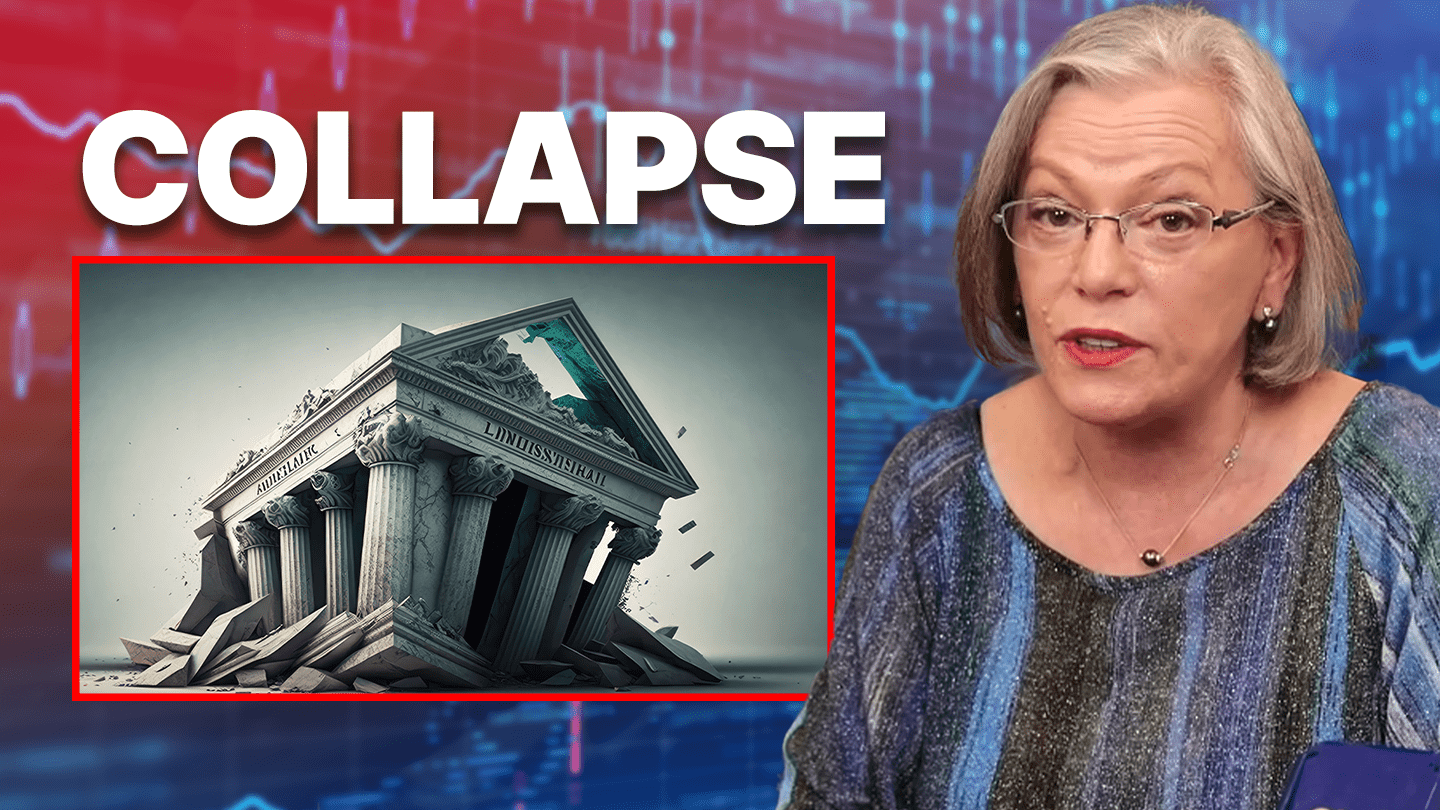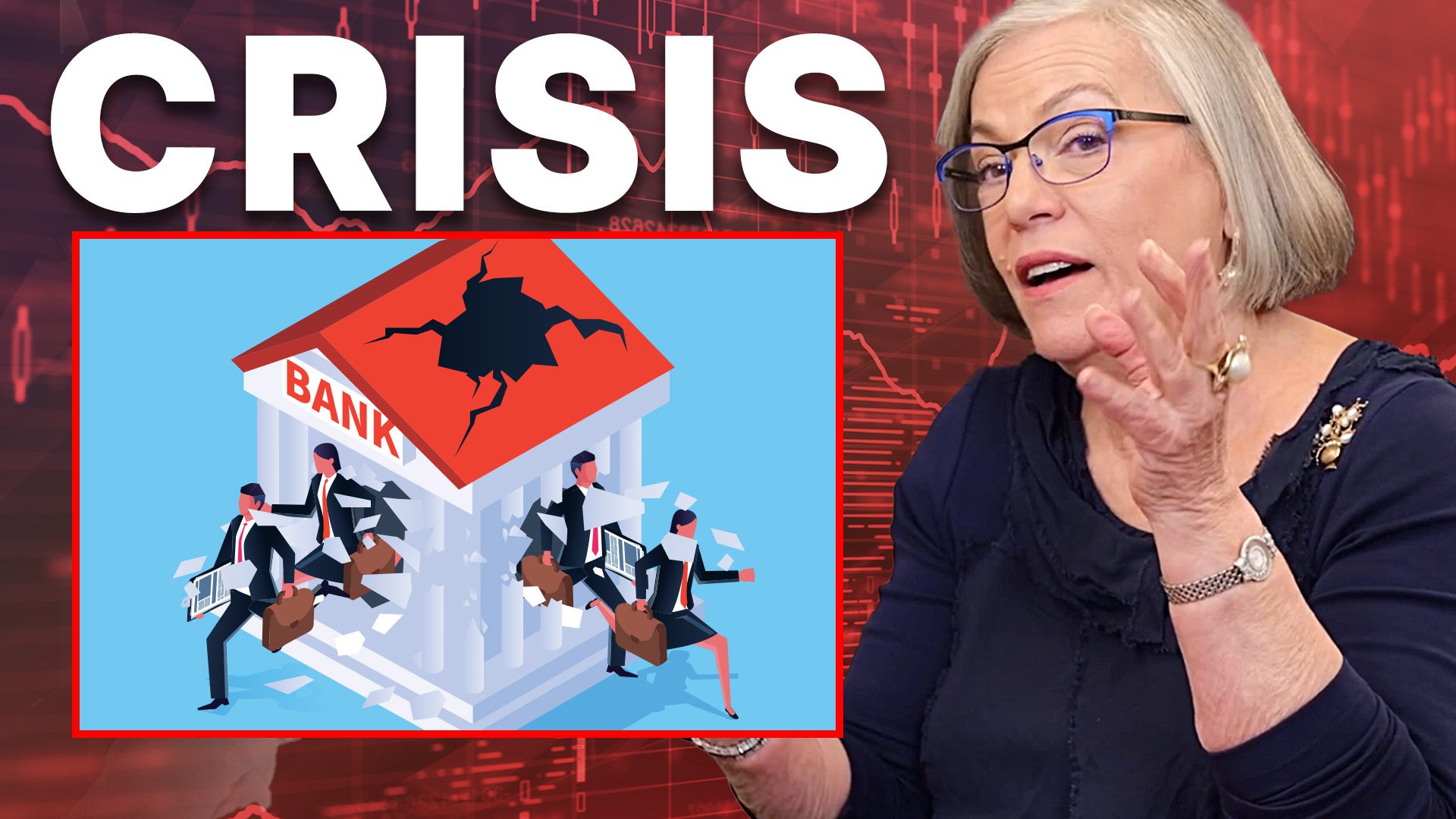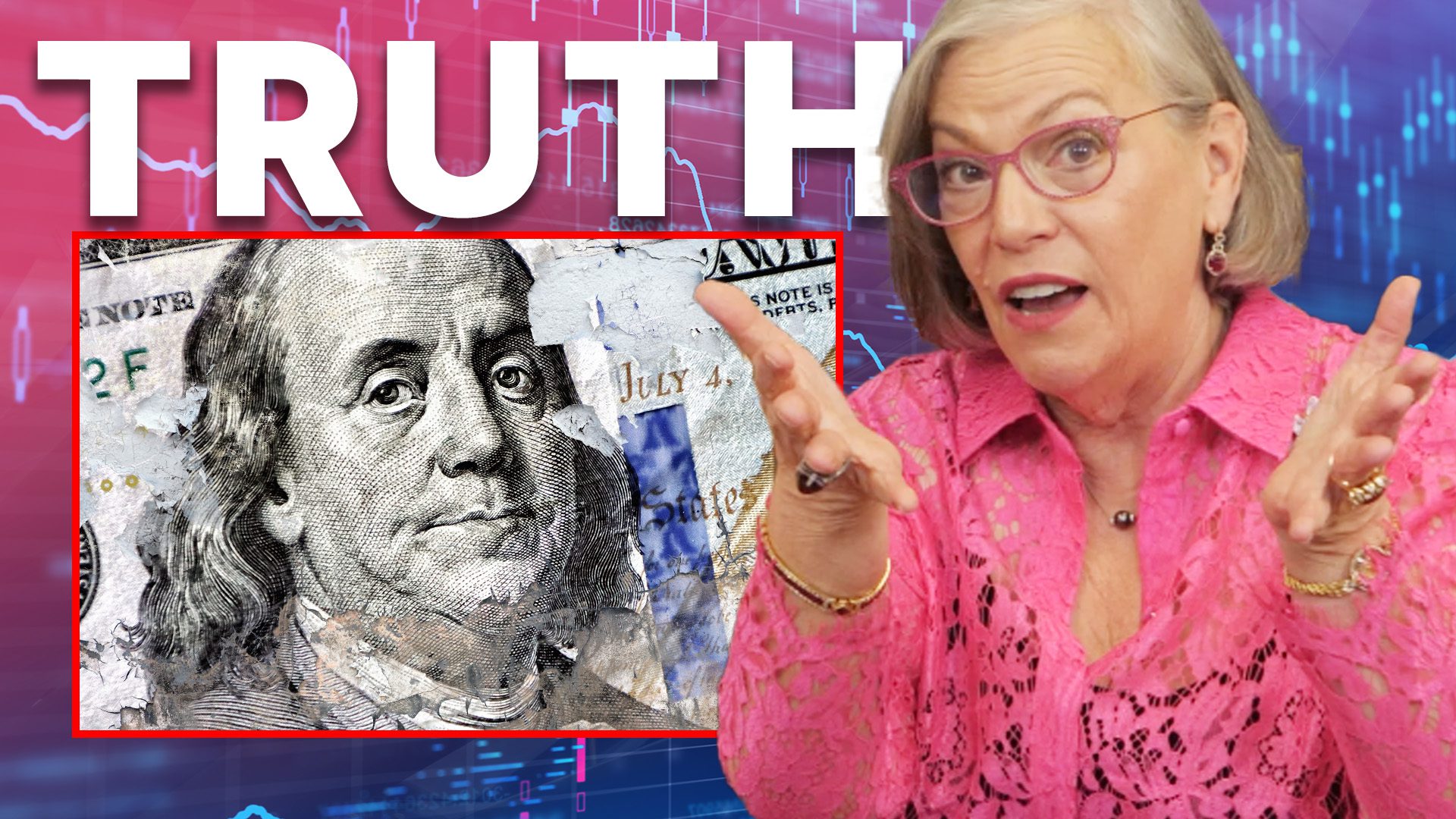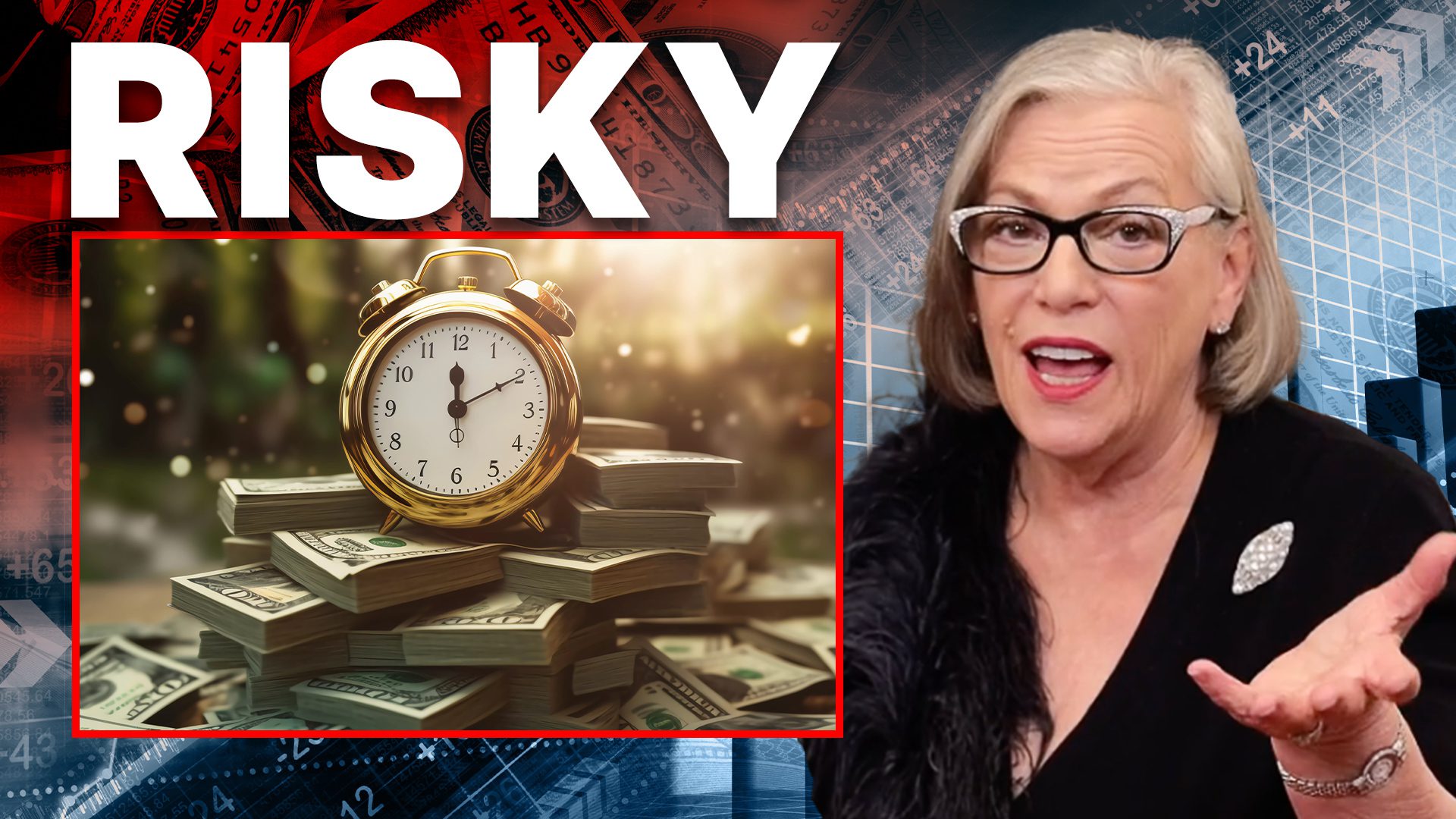The Financial Reset is Picking Up Steam | Your Questions Answered!
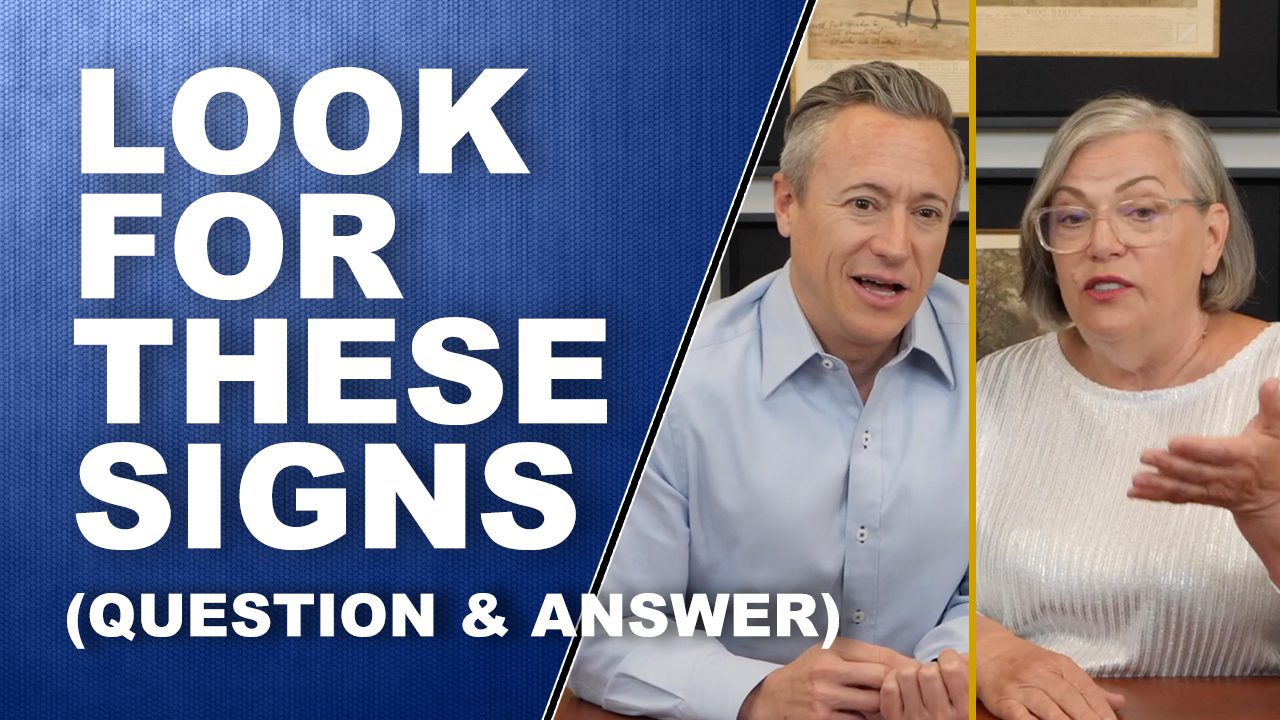
Eric sources questions from Lynette’s viewers and Lynette responds with organic and unrehearsed answers. If you have a question for Lynette and Eric, please either submit your question though YouTube, Facebook, Twitter, or email to questions@itmtrading.com. If you enjoyed the Q&A with Lynette Zang, please like, subscribe, and share in order to help Lynette fight the fiat money disease!
Have questions for the Q&A, email us at questions@itmtrading.com
Have questions about acquiring gold and silver? Call: 877-410-1414
Viewer Submitted Questions:
Question 1: 0:58
Where will the liquidity come from during a market melt-up?
Question 2: 2:05
When the market crashes, how long until a recovery?
Question 3: 4:42
You often mention that we are in the beginning stage of a financial reset. As someone who believes there is no other alternative other than that, can you tell me/us what visible signs there will be as this begins to pick up steam?
Question 4: 13:15
Do old debts really matter in a global monetary reset?
Question 5: 14:59
Why do people believe in central banks if they want our plight?
__
TRANSCRIPT FROM VIDEO:
Eric Griffin:
Hello, everyone. Welcome to our pre-recorded Wednesday, Q&A. You’ll see it. Wednesday, June 29th.
Lynette Zang:
June is already over it’s amazing
Eric Griffin:
It’s crazy. Mm-Hmm <affirmative> so, and that’s one day after your 20 year, right? June 28th.
Lynette Zang:
Yeah. June 28th is my 20 year anniversary
Eric Griffin:
At ITM trading
Lynette Zang:
At ITM trading.
Eric Griffin:
Yes. And for those of you who don’t know, we take your questions, submitted to us via email to questions at ITM trading. And we ask them, we put ’em on the screen. We ask ’em live. So you get a true organic response. Mm-Hmm <affirmative> so Uck bay <laugh> asks,
Lynette Zang:
Which I was curious if that was, and I would really like to know if that’s really buck and pig Latin, because that’s exactly how you would say
Eric Griffin:
Uckbay and spell
Lynette Zang:
And spell it
Eric Griffin:
Uckbay asks, where will the liquidity come from during a market melt up?
Lynette Zang:
The central banks and that’s what’s gonna happen. We’re gonna get a pivot. That’s why, I mean, there are a lot of reasons why we’re in a really dangerous situation, but we’ll see how much pain the central banks can handle before they do a pivot and make the level of money printing like they did in 2020. Look like chump change, just like they did make what they did in 2008 look like chump change. I mean, we’ve now gone since the great financial crisis, 2008, where we were at the Fed’s balance sheet was at 800 billion up to 9 trillion. It’s just Fiat
Eric Griffin:
So much higher than that now. All right, avid our. When the market crashes, how long until a recovery?
Lynette Zang:
You know, the bigger the fall, the longer the recovery. And we’ll be looking for things like a cup formation to know when we’re near a bottom. And this is our opportunity for those of us that hold gold specifically for this function to convert into income producing. But I can’t tell you how long a recovery it will be because what they’re gonna do and what they are doing. So it’s not what they’re going to do. What they are doing is shifting us from crisis to crisis, to crisis, to crisis so that, you know, this next piece, this next recession is gonna be more like a depression, frankly. And then they’re gonna pivot and they’re gonna print so much money, so much new money that it’ll make the inflation that we’re dealing with right now. Look like nothing. I mean, seriously, we’re gonna be wishing for these times, if we are not prepared with physical gold and silver in our possession. So I can’t tell you how long a recovery. What I can tell you is that I have personally planned with my barterable position for 10 years. So, you know, it could take longer than that. It could take less than that. And if it takes less than that, doesn’t really matter to me because I have gold and silver. So booty hooty, rooty manooty. I like doing it when it doesn’t really matter whether I’m right or wrong. Now, technically speaking, I can tell you that this recovery phase usually takes a percentage of, you know, the second phase of the system. So that’s why I personally prepared for 10 years, but I can’t, I can’t give you that information depends on how stubborn they are. And it depends on how quickly people will, how soon we will get to the real reset. In other words, then backed by gold. That’s how you’ll know that we, that we are in conclusion is when they put a component of gold in the new currency. So it depends on how quickly that will happen, how quickly people will adapt to the CBDC’s, the digital currencies, cause that’s where they’re taking us central bank, digital currencies. But I could tell you that I’m planning for 10 years might be longer, might be less.
Eric Griffin:
All right. So Paul S asks, you often mentioned that we are in the beginning stage of a financial reset as someone who believes there is no other alternative than that. Mm-Hmm <affirmative> can you tell me what visible signs there will be as this begins to pick up steam?
Lynette Zang:
We’re experiencing it right now, the rapid level of inflation and then the panic of the central banks. And if you have not looked at the video that I did on the markets, losing confidence in the central banks, go back. I did that last week, go back and watch that because those are the visible signs. The central banks are panicking for too long. They had the narrative that this was the inflation was transitory. Well, didn’t prove to be transitory. And if you were watching this station, since the beginning of this, actually, since they changed where instead of targeting 2%, they were gonna target an average. That’s when I said, oh, you better get ready for the inflation. They’re getting us ready for it.
Eric Griffin:
You did say that.
Lynette Zang:
Of course I said that <laugh> that’s because it’s obvious, but now they’re really panicking. So they’re, they’re attempting to catch up, but they don’t really have the tools to fight all the money printing that they did, which is really what skewed the demand supply side of this whole thing and pushed all of those assets that they targeted openly for reflation. You know, so stocks, bonds, and real estate. We’re already seeing all of these signs and we are headed. There’s no doubt in my mind that we have already begun to enter a hyperinflationary depression. This is way worse than stagflation. And we’re already in stagflation. They keep talking about the threat of it, but GDP was down. So it’s not considered an official recession because we need several quarters of that, but we’re already here. So visible signs would be what we’re seeing and uptick in inflation and a downtick in growth. And central banks panicking, we’re here, and they volunteered their credibility. That scares the crap outta me. And I’m not kidding about that because that is everything in a con game is credibility. So when you volunteer that, I mean, what do you think that means?
Eric Griffin:
What do you mean volunteered that?
Lynette Zang:
Well, when, I mean volunteered that they kept saying that it was a 50 basis point. They were gonna increase by 50 basis points by 50 basis points. This is what they transmitted through their forward guidance to the markets. So the markets could be prepared for it, but then they ended up raising it 75 basis points. So they had to know, I mean, they’re not stupid. They had to know that they were doing something completely different than what they had telegraphed to the markets that they were gonna do. And so that’s what I mean by volunteering it because now the markets don’t believe ’em anymore. They can say 50 basis points. They can say whatever, and the markets are going really? Because this last time you told us one thing and you did another. So that’s what I mean by volunteering. And I think that’s a very big deal because they had to know that that was really gonna rattle the market confidence in their forward guidance. So they just killed it. They just killed it and forward guidance for those that aren’t familiar with it forward guidance has been a tool that’s been used quite extensively since 2008. And what it does is it kind of front runs central bank policy, because if the central banks tell the markets that they’re going to raise interest rates by for example, 50 basis points. Well, we know, okay, well, I don’t have anything straight here, but this is principle. These are interest rates. So when interest rates go up, the principle value of all of the bonds and all of the debt instruments out there goes down when interest rates go down, the opposite happens. Right? So, and, and it is actually at a level because bonds must always be at market. So that, that means that any new bonds or any old bonds, whatever that interest rate market interest rate is, that’s where they must be. So here they’re telling the banks and Wall Street that they’re only gonna go here and instead they went here. That’s what I mean by volunteering. And that is a very big deal because I would imagine that would be the last thing that they would wanna give up. All right. Do you have any opinion about that? But was I clear on that
Eric Griffin:
Yeah. Oh for sure.
Lynette Zang:
I really wanna make sure that people understand that because that is so critically important. You know, and I am reading, you know, comments from Wall Street and stuff like that. So I can see, without a doubt that Wall Street has lost the confidence in the central banks. There’s only one other level of confidence that needs to go away. And that’s the public confidence and the faster inflation runs, the hotter it runs and those things that are really obvious. I mean, what did the feds say too? That, you know, they were always talking about core inflation which strips out food and strips out energy. But now they’re talking about paying attention to headline inflation, right? They’re panicking. They know they’re outta tools and they volunteered…
Eric Griffin:
Raising rates into the headwinds, which is very difficult. They know they’re pushing it further into a recession. They’re gonna push the real estate market down. It’s gonna be bad for the stock market. They know all these things,
Lynette Zang:
Right. So how much pain?
Eric Griffin:
Excuse me. Yeah, I know. It’s so interesting.
Lynette Zang:
Oh, it’s fascinating.
Eric Griffin:
What a predicament they’re in right now and why they would be panicking. Right. I mean, it makes sense.
Lynette Zang:
Right. And, but why would they volunteer their credibility when they need that credibility to keep this con game going?
Eric Griffin:
Well, I didn’t watch it. So did they say anything about that? Did they address that? No. Did they say, oh, well, you know, I know we said 50 basis points and we did it 75. They didn’t say a word about it.
Lynette Zang:
No, they didn’t say a word about it, but Wall Street did.
Eric Griffin:
Yeah. Well
Lynette Zang:
They said, they said forward guidance, bond traders have said forward guidance. Is there a meeting?
Eric Griffin:
Isn’t there something coming up where there’re gonna be a test? There’s gonna be testimony, right?
Lynette Zang:
Well, that was today.
Eric Griffin:
Oh it was today. And
Lynette Zang:
So, oh, no, it was last week because we’ve recorded this. It was so it was a week ago today.
Eric Griffin:
Okay. I gotcha. I was like, wait, hold on. I think it was soon, soon.
Lynette Zang:
Right. And I mean, they always have those, so
Eric Griffin:
It’s have you watched it, did
Lynette Zang:
You see that? I did. I listened the whole thing.
Eric Griffin:
Okay.
Lynette Zang:
So yes.
Eric Griffin:
And in that testimony, they didn’t say anything about that. They didn’t say, oh yeah, I know we told you 50 and we did 75
Lynette Zang:
No because they were in front of the Senate Committee
Eric Griffin:
Credibility a little bit. Right? Like, Hey, this is the reason, you know, doesn’t usually happen. We don’t plan on doing it again. Right?
Lynette Zang:
Oh, well, he, he did say when he raised his 75 basis points that the next one might be 50 basis points. So he is kind of trying to grab it back. But no, you, you, once you do something different than what you’ve done for the last, well, this is 2022 and that was 2008. So 14 years I think it’s a little shocking. And once that confidence is lost, how do you get it back again? They’re gonna try. And that puts everybody in more jeopardy, cause they’re gonna, they’re gonna go big shock and awe, unless everything gets too painful for them. And that’s what we don’t know. How, how painful is it gonna get before they turn around? And they print 20…200 trillion. I mean, it’s irrelevant, but that’s how close we are to end game with them panicking. So yeah, no, I don’t think they can get it back that easy.
Eric Griffin:
All right. So Robert B asked, do old debts really matter in a global monetary reset?
Lynette Zang:
Well, history shows us that the little people, the general public doesn’t really ever get out of that debt. It just makes ’em more of debt slaves now, governments. And those that are issuing the debt can default on that debt or they can repay it with hyper-inflated dollars, which is actually part of the strategy that we issue here on fixed rate. So I don’t necessarily think that old debts matter for governments in a global monetary reset, but considering the level of control that governments and central banks want to have over the individuals, I think it will matter very, very much. That’s why you need to be, I believe this so strongly, you need to be in a position to whatever debt you have, that boom, you can pay it off in a moment’s notice same as governments with dollars in this country that have zero value. And we’re pretty close to that now, but we’re going into the hyperinflation and that’ll, you know, you’ll, if you, if you were to actually actually be executing our strategy, you would be paying off those debts. And therefore it wouldn’t matter in a global reset cause you’re paying them off for nothing. Right? But you gotta have gold
Eric Griffin:
And as long as you have enough funds to be able to
Lynette Zang:
Well, if you have enough gold, you’re gonna have enough funds. Right,
Eric Griffin:
Right. But I’m saying enough funds to buy the gold you need in order to execute the whole thing.
Lynette Zang:
Well true. But the sooner you start and the sooner you add to it, the more you have.
Eric Griffin:
Yeah, totally. Well, especially with it being undervalued. Right. Okay. So Polish, silver stacker ask, why do people believe in central banks if they want our plight?
Lynette Zang:
I’m not sure what they’re asking
Eric Griffin:
I think they were kind of getting at like if central bankers really want to see the down downfall.
Lynette Zang:
Oh, okay.
Eric Griffin:
Right. Or the like central bank digital currencies, you know, the inflation keeping up going higher than wages. Right. Like if they really want to plight, why do people actually believe in the central banks?
Lynette Zang:
Well, I don’t know cause I don’t,
Eric Griffin:
But yes, but you also know
Lynette Zang:
This is the world that I live.
Eric Griffin:
I think it’s more about perception management. Right?
Lynette Zang:
A hundred percent
Eric Griffin:
Great at perception management and that’s why people believe in them
Lynette Zang:
Yes. I would say that’s, that’s true. We have a pretty strong, the public has a very strong well it’s been declining, but generally speaking, they, they wanna trust our institutions. They wanna trust our government. They wanna trust our central bankers. And so it’s the normalcy bias, but you make a very, really valid point because all of that is about perception management. You know, Chair Powell came out and said that it really is. They’ve already lost the inflation expectations at the short term level. They’ve actually officially lost it at the intermediate term level. They are fighting desperately. And this is globally. The central bankers are fighting desperately to retain those inflation expectations, expectations, not reality, but the expectations of inflation on a long term level because, and they’re starting to lose that as well because once they lose that, that is the confidence of the public and the central bank that they actually can control inflation, which they can’t we’re at a point they have been able to that’s really been the big genius of this whole Fiat money experiment that had never been done before they created the federal reserve. You know, I mean, up to that point, all central banks had was a 15 to 20 year charter mostly. Right? So they went away unless the government renewed that charter, they went away after 15 or 20 years because governments understood that what central bankers would end up doing is inflating away the value of the currencies. So this was the first time and you know, really the hyperinflation typically happened during war periods when governments needed to create a lot of money to pay for the war. Right. So you’d go into hyper inflation. And then there was a long period, like I think don’t hold me to this, but I did a piece on this years ago. I think it was like an average of 52 or 54 years between major wars between that hyperinflation. So people forgot. Right. And then they could do it again. But once they instituted the federal reserve, it was in 1927 where they gave them an unlimited charter. So their first charter was for 20 years. So 1920 to 1933. Hmm. Coincidence?
Eric Griffin:
1913
Lynette Zang:
1913 to 1933. Yeah. Thank you. But in 1927, that was the first time any central bank had been granted a perpetual charter.
Eric Griffin:
I thought they made it all. I thought it was a hundred years because I remember reading in 2013 that they was coming up for renewal and no one was talking about it.
Lynette Zang:
No, it wasn’t. No mm-hmm it was a perpetual cause I read all the documents mm-hmm okay. So that, that was a perpetual charter that they were granted in 1928. That’s when the industrialists and all the money people that knew that Wall Street was a Ponzi scheme. This is when the public started to get into buy into it. And when the industrialists really started to sell out and remember that’s also when they were giving credit to the general public for the first time was like in the teens, they were turning us into a consumer driven economy. So by the time you had a perpetual charter and you had the industrialist sell out and capture most of their gains, right? Cause they understood that it was just a paper market. Then the credit was cut off to the general public and you had the crash of 1929. So you know the experiment then really, especially in 1971, when Nixon took us off the quasi gold standard, what he really did was hand over the full control of inflation to the central banks who know, you know, debt and interest rates. And so that was like the death note. You give it over to bankers? Whose real job is not really taking care of the public, but taking care of the banking system and the private corporations around them. So yeah. Why do people believe in central banks? I have no idea cause I sure don’t
Eric Griffin:
Because they want you
Lynette Zang:
Yeah. Thank you. That’s that’s just the right answer. So we’ve had really a very busy week and there’s a lot that’s going on. So make sure that you watch my recent reports on what’s happening in the European union because their ability to stay together as a union is being tested again. And I mean, ultimately they’re gonna fall apart because no pegs can have ever held up over a longer period of time. So that is a really critical one cause it will impact everywhere in the world. And the key one though, the single most important one is how the fed is also fighting inflation. Well that is, not the key important one that was the week before, but how the fed fighting inflation by capping workers income. So they’re gonna make sure that unemployment goes up and stays up so that the employees have no more bargaining chips to ask for more money cause, credit the federal reserve that’s what’s causing the inflation, not their money printing, not all of what’s going on in the rest of the world, although they’ll deflect and deflect and deflect, but yeah, it’s those wages of people going up. So you wanna absolutely. I, I think I’ve been putting out some pretty good work and you don’t hear me say that all the time, but my mother always said, when it’s true, you can say it. And these are really important videos, particularly the one where the fed has volunteered their credibility.
Eric Griffin:
That one was called pattern shift.
Lynette Zang:
Yeah. Critical pattern shift, the single most important video that I’ve ever done because that is the single most important pattern shift that I’ve ever actually witnessed. And it’s it surprised me this soon. I knew it was gonna happen, but I didn’t really expect it yet. So that indicates where we are in this trend cycle, get Food, Water, Energy, Security, Barterability, Wealth Preservation, Community, and Shelter, get it done, get it done. The clock is ticking and we only have as much time as we have. And who knows how much that is, but it’s growing. The Fed is panicking. It’s short. But if you have not already, absolutely you need to get your strategy in place. They have a strategy, you need a strategy. You wanna sustain your standard of living, but you also wanna be in a position to take advantage of what’s happening. I mean that’s how wealth always transfers. How about if it transfers your way? I think that’s just the right idea. So give us a call or click that Calendly link below set up a time to talk to one of our golden silver strategy specialists and they’ll help you establish your goals and establish a customized plan. And I think that is essential and critically important to do ASAP. But if you like this, please give us a thumbs up. Make sure that you leave a comment and share, share, share, because ignorance does not make anyone immune. It just leaves people vulnerable. And this is not a good time to be vulnerable. So, you know, it is totally time to cover your assets. And the foundation of every portfolio needs to be physical gold and physical silver real money. And we utilize the wealth shield to help you, you know, sustain your standard of living and grow your wealth base. So until next we meet, please be safe out there. Bye bye.

